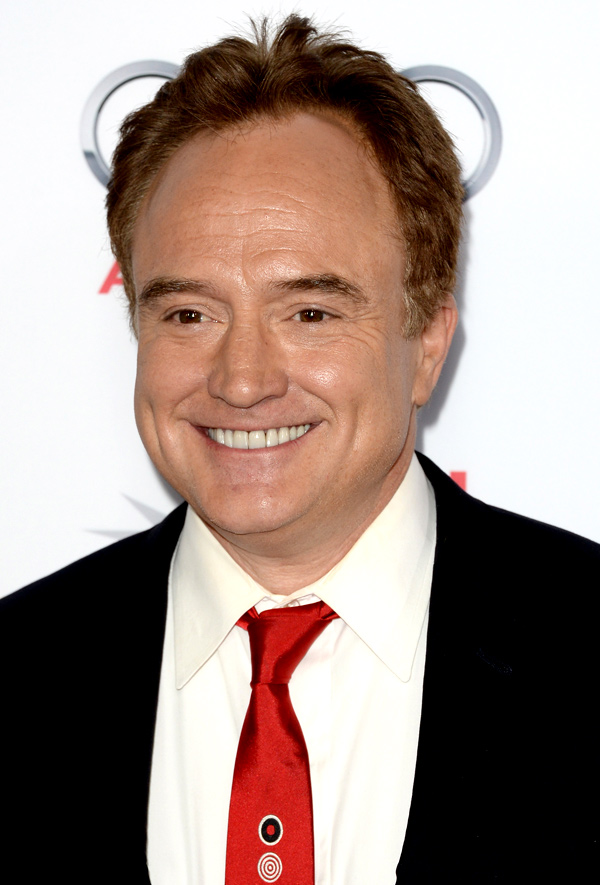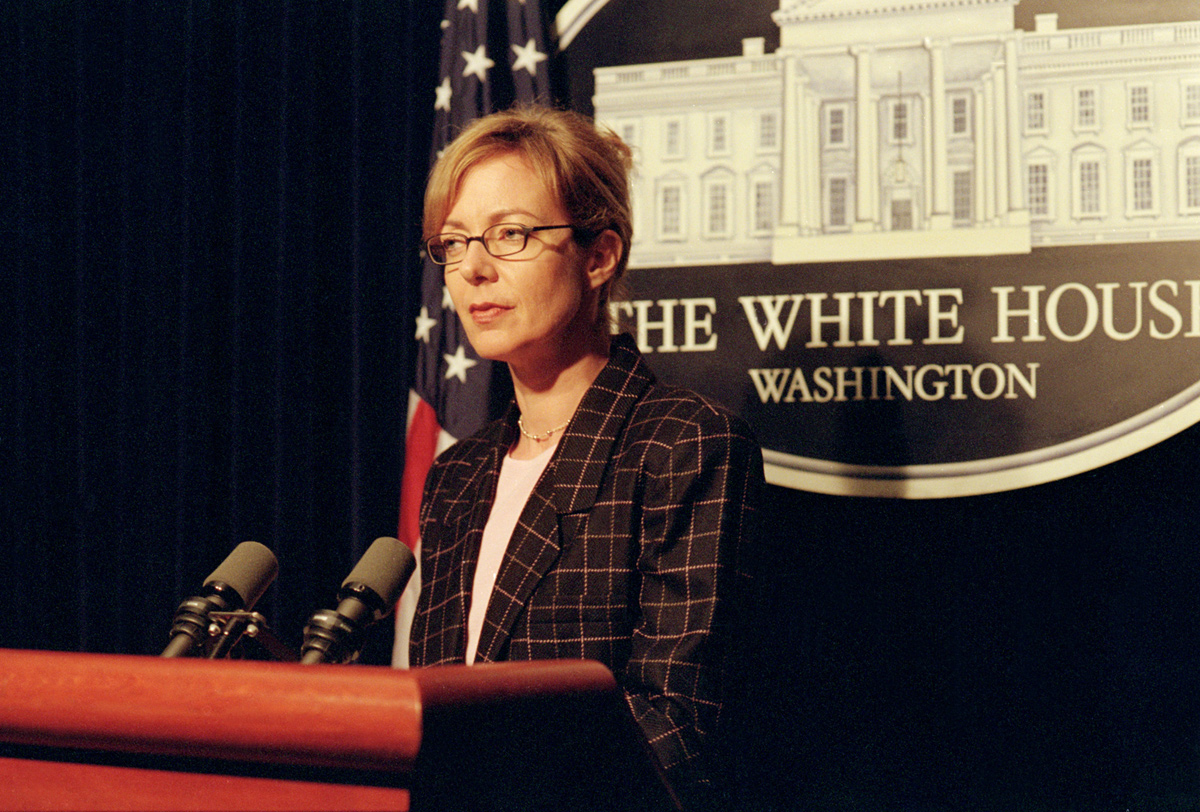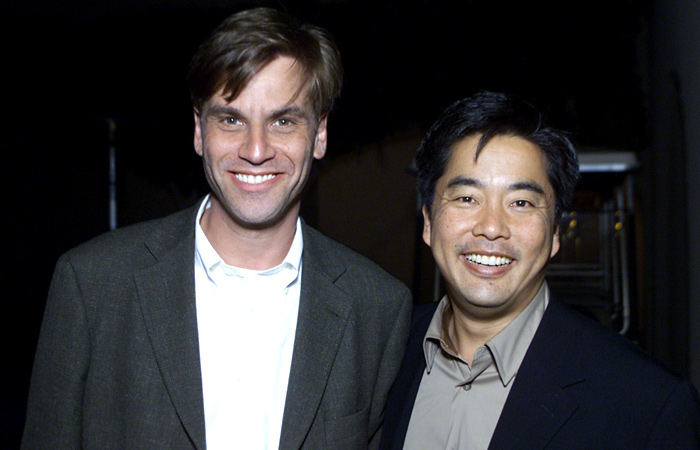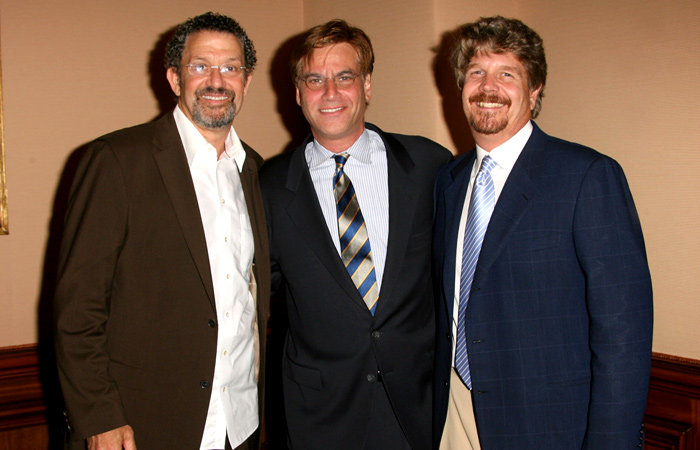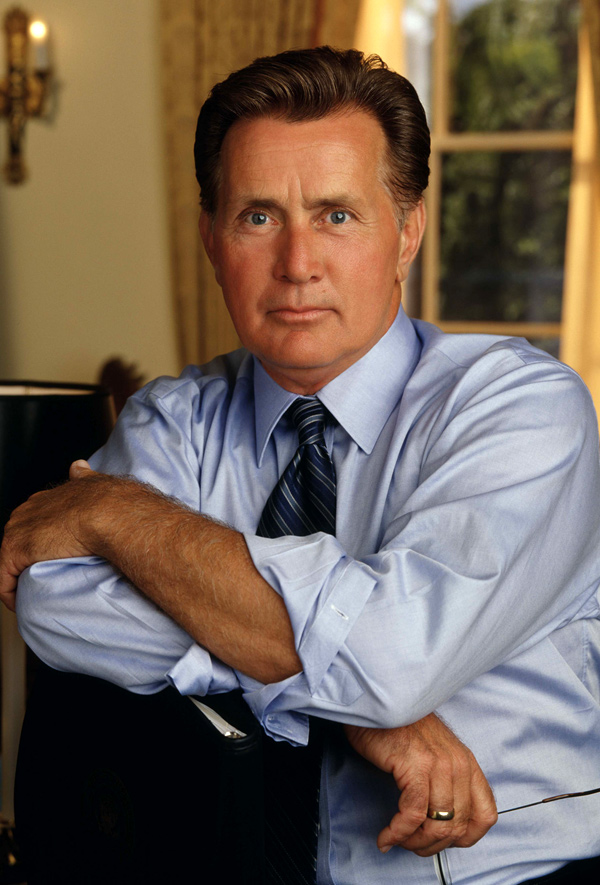Fifteen years ago, Aaron Sorkin's The West Wing aired for the first time on American television. Arriving in the wake of the Lewinsky scandal and assembled from the off-cuts of Sorkin's screenplay for The American President, the show was an idealised view of liberal American politics that invited viewers inside a White House populated by whip-smart, quixotic and impossibly witty people. It confounded the belief that political dramas didn't work on television, running for seven years and gaining 26 Emmys along the way. With writing, acting and production of a quality then only found in cinemas, The West Wing did for network television what the Sopranos would simultaneously do for cable, elevating the medium to a different level and paving the way for a new golden era of home entertainment.
Aaron Sorkin (Writer/Creator): I had never thought of doing television. But my agent wanted me to meet John Wells, who had had a lot of success producing ER and China Beach. The night before the meeting, some friends were over for dinner and Akiva Goldsman and I slipped downstairs to the basement so we could sneak a cigarette. He said, "You know what would make a good television series? That." And he was pointing at The American President poster. He said, "There doesn't have to be a romance, just focus on a senior staffer." I said, "That does sound like a good idea, but I'm not going to be doing a television series." The next day I walked into the restaurant and immediately saw this wasn't what I thought it was going to be. This wasn't just a "hello, how are you?" meeting, because John was sitting with a couple of agents and studio executives from Warner Brothers. Right after I sat down, he said, "So what do you want to do?" And instead of saying, "I think there's been a misunderstanding, I don't have an idea for a television series," which would've been honest, I said "I want to do a television series about senior staffers at the White House". He said, "Okay, you got a deal."
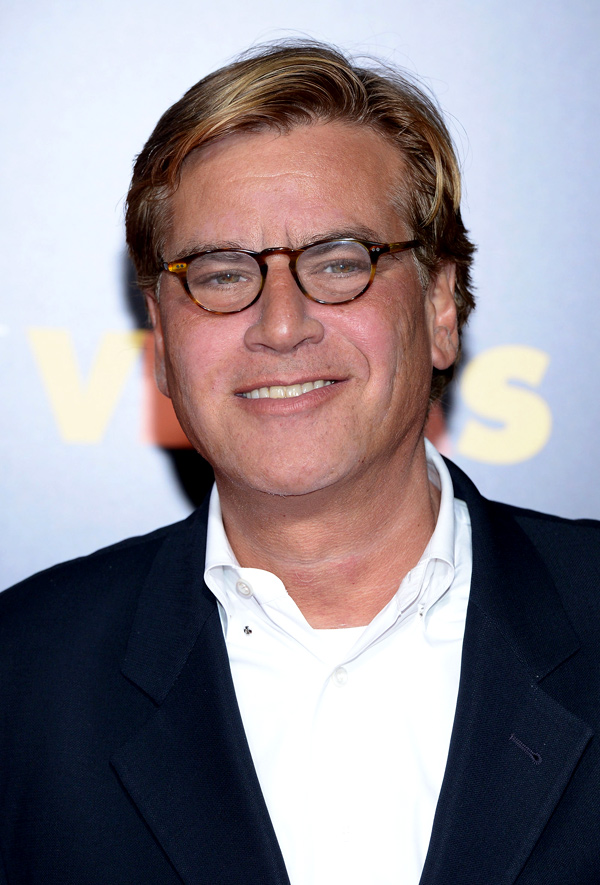
"The hardest thing for me is getting started. If I'm writing a script, really 90 per cent of it would be just walking around, climbing the walls, just trying to put the idea together. Then the final 10 per cent would be writing it."
John Wells (Executive Producer): We talked about how he had spent a lot of time preparing the script for The American President with the staffers who worked in the West Wing and how he hadn't been able to write about them as much as he wanted to in the movie.
Sorkin: I thought I would tell a contemporary story of kings and palaces. I like workplace shows and this was a very glamorous workplace to set a show in; it appealed to a sense of romanticism and idealism that I have. But the hardest thing for me is getting started. If I'm writing a script, really 90 per cent of it would be just walking around, climbing the walls, just trying to put the idea together. Then the final 10 per cent would be writing it. Fortunately I had written a very long first draft of The American President: about 385 pages, when what you want is 130 or 140. So there were these tiny shards of ideas and one of them, about Cuban refugees, I was able to spin into a pilot.
Wells: I was in the throes of ER at the time and had a six series deal at NBC, so I took it to them and told them I wanted to do this as part of the deal. They didn't want to make it. They felt that people didn't care about politics and it just wouldn't work. But the way my deal was structured, they had to either make it or give it back to me to set up someplace else so they finally said "Well okay, we'll make it but we don't want to make it this year."
Sorkin: The Lewinsky scandal was happening at the very time I was writing the pilot and it was hard, at least for Americans, to look at the White House and think of anything but a punch line. Plus a show about politics, a show that took place in Washington, had just never worked before in American television. So the show was delayed for a year.
Wells: Aaron had written another show after he wrote The West Wing and during that year it got on the air. Tommy Schlamme, a director I'd been doing ER with, went over and together they made Sports Night.
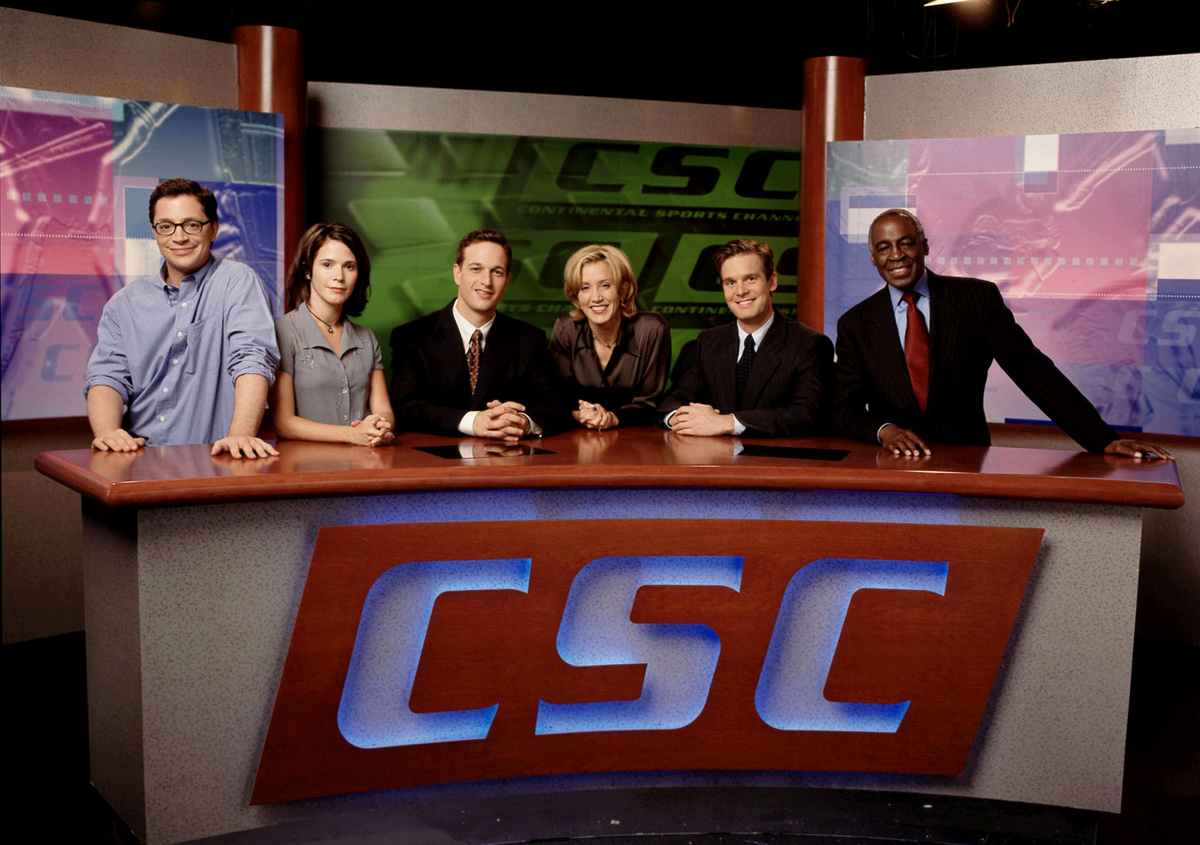
Thomas Schlamme (Director/Executive Producer): My agent sent me Aaron's scripts for both The West Wing and Sports Night and I read them on the same night. I called him at, like, 12.30 on a Saturday night and went, "These are the two best scripts I've ever read!" I had done mainly half-hour comedy-dramas, so my good fortune was that Sports Night was going first as The West Wing was delayed by the Lewinsky scandal. Thank God for blowjobs, because they got me The West Wing!
Wells: After Sports Night the network actually understood Aaron's rhythms and the way in which he writes. We went back to NBC and said, "Look, it'll be Aaron and Tommy and me. Aaron's going to write them, Tommy's going to direct them and I'll produce it. You told me that if I signed this six series deal with you, you were going to make this stuff. I want to make it, so let's make it!" And they reluctantly did, with some very funny notes in between.
Who's Who On The West Wing
Scoring The West Wing
Bradley Whitford (Josh Lyman): It should scare the shit out of every development person in Hollywood that if any of them had any idea that Breaking Bad was going to be as successful as it was they would've destroyed it. The same is true of The Sopranos. If they thought it was going to be successful, they never would've met Gandolfini. And if Aaron had allowed his show to have the conventional network interference it would've been a disaster. They read the pilot and, if you remember, the Cuban refugees were on boats and Sam and I are trying to figure out whether we let them land in Florida or send them back. The note from NBC was, "We need to get Sam and Josh in the water." Like Rahm Emanuel in a fucking Speedo! Saving the Cubans!
Wells: There was a governor at the time who had just been elected in Minnesota called Jesse Ventura. He'd been a professional all-star wrestler: a big, bald dude. And the network kept saying, "We don't want to do something about a liberal Democrat. We need a populist, somebody who's a wrestler or a race car driver or a football player coming in from the outside and shaking things up." We chose not to do that.
